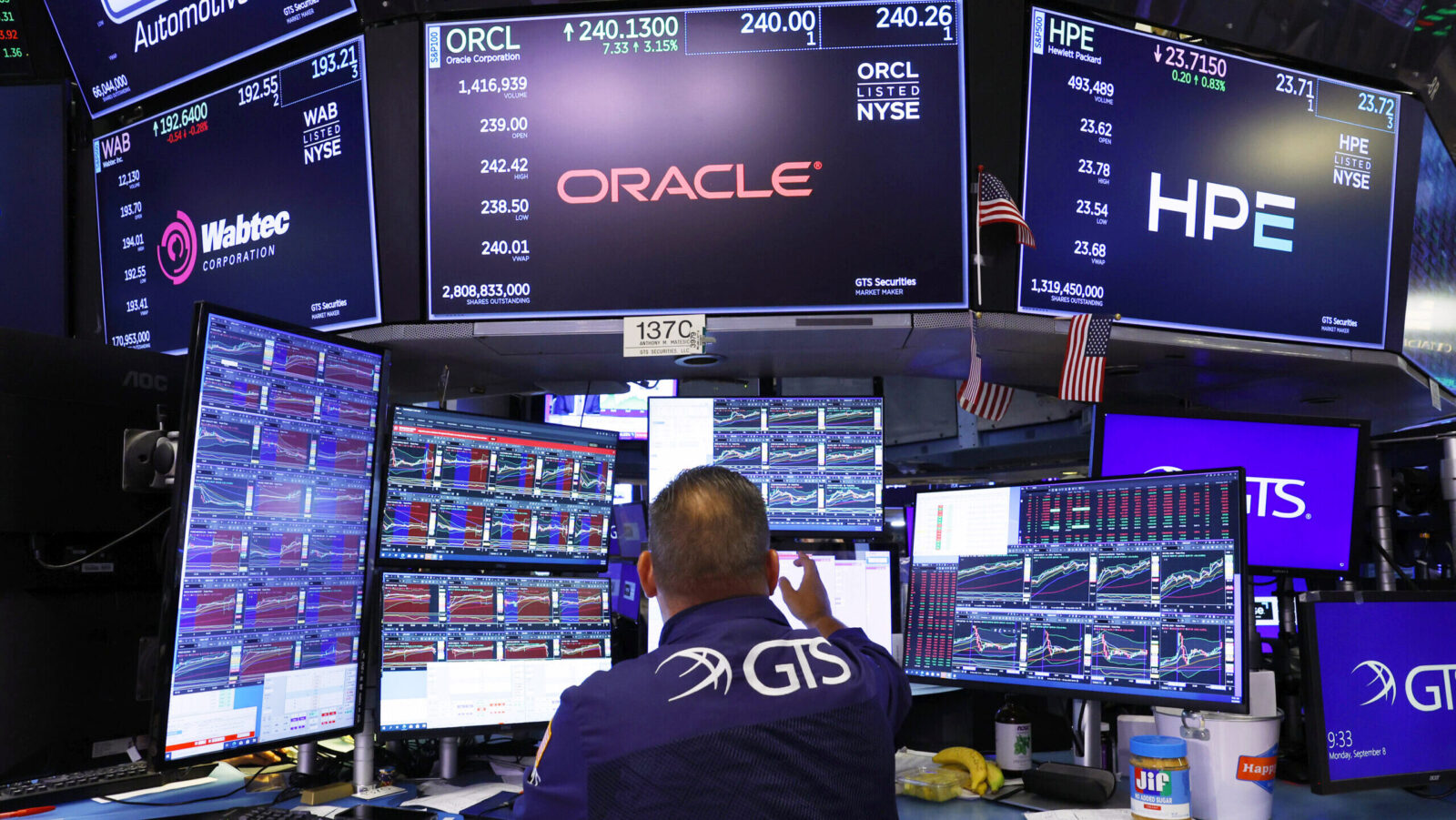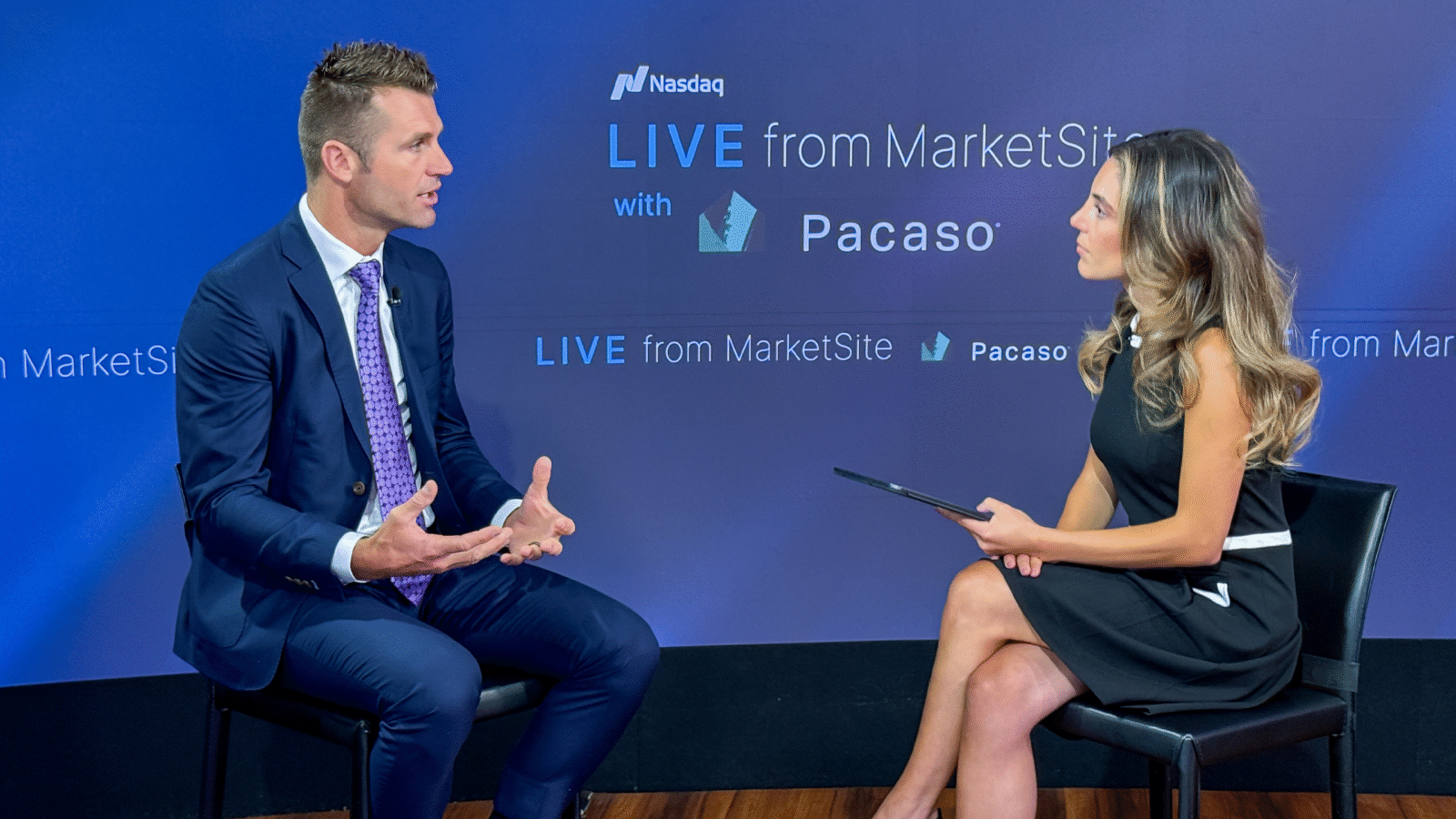Good morning.
Paramount Skydance was formed barely more than a month ago, combining news, television, movies and streaming assets into a new entertainment giant. That was the warmup act. The David Ellison-led media conglomerate is eyeing an expansion that would make the last one seem like yesterday’s CBS News.
The Wall Street Journal reported Thursday that Paramount Skydance is readying a bid for Warner Bros. Discovery, which sent the latter’s shares surging more than 25%. A deal would bring CBS and its news operations under the same umbrella as Warner’s CNN, along with rival streaming services, film studios and cable TV portfolios. It would also preempt Warner’s plans to split into two separate companies, one for streaming and studios, the other for its TV networks. DC Comics and its intellectual property would come as part of the deal. As Superman might put it, mergers, acquisitions and the American way.
Overenthusiastic or Just Right? The AI Boom’s Goldilocks Question

March of this year marked the 25th anniversary of the dot-com bubble doing what bubbles do: pop. In the months since, a growing cohort of prominent market observers and participants has warned that the current AI boom could represent a repeat.
Among them are University of Michigan financial markets expert Eric Gordon, OpenAI CEO Sam Altman, Alibaba chair Joseph Tsai, Apollo chief economist Torsten Sløk and Bridgewater hedge fund leader Ray Dalio. They have a case worth taking seriously, but so does the other side.
Magnificent or Predicament
The dot-com bubble formed in the late 1990s when the internet, then a relative novelty, was pitched as if it were going to transform the world. It did, of course, but investors also piled into every IPO and opportunity with a “.com” attached to it, regardless of whether a business plan was also attached. Between 2000 and 2002, after the bubble popped, the Nasdaq lost nearly 80% of its value, wiping out trillions of dollars in wealth.
AI, like the internet, is poised to change the world. Money is pouring into the sector at breakneck speed, while investors have been more enthusiastic for tech IPOs than Philadelphia sports fans are for The Birds. As Altman told The Verge last month: “Are we in a phase where investors as a whole are overexcited about AI? My opinion is yes.” There are also data points of concern: The US Census Bureau’s biweekly survey of 1.2 million businesses shows AI adoption among companies with over 250 employees falling in recent weeks. Harrison Kupperman of Praetorian Capital wrote last month of a “shocking” discovery: “The AI datacenters to be built in 2025 will suffer $40 billion of annual depreciation, while generating somewhere between $15 and $20 billion of revenue. The depreciation is literally twice what the revenue is.” He reckons revenue will need to “grow roughly tenfold, just to cover the depreciation.” All things considered, there is still reason to believe the AI boom is on sturdier ground than 2000:
- The Roundhill Magnificent Seven exchange-traded fund, which tracks the world’s biggest and most influential tech companies, currently trades at roughly 35 times forward earnings. That’s not comparable to 2000, when the forward price-to-earnings ratio of the Nasdaq 100 was 60 (currently, it’s 32).
- Perhaps more crucially, the Mag 7 companies driving the AI boom are not speculative, unproven companies with “.com” attached to their names. Apple, Microsoft and Alphabet are trillion-dollar firms that are profitable and have resilient balance sheets. Pets.com is not the driving force behind the International Data Corporation’s estimate that year-over-year spending on AI will grow by nearly 32% between 2025 and 2029, when it will reach $1.3 trillion.
Those are the Rules: Tech company IPOs, especially in crypto or AI-related fields, have experienced big pops this year, only to decline after initial investor enthusiasm. Which, regardless of whether there is a bubble, warrants keeping something Altman told The Verge in mind: “Someone is going to lose a phenomenal amount of money. We don’t know who, and a lot of people are going to make a phenomenal amount of money.”
Keep This Stock on Your Watchlist

They’re a private company, but Pacaso just reserved the Nasdaq ticker “$PCSO.”
Created by a former Zillow exec who sold his first venture for $120M, Pacaso brings co-ownership to the $1.3T vacation home industry.
They’ve generated $1B+ worth of luxury home transactions and associated fees across 2,000+ owners. That’s good for more than $110M in gross profits in less than 5 years.
No surprise the same firms that backed Uber and Venmo already invested in Pacaso. But you don’t have to be a Wall Street firm to invest. Pacaso is giving the same opportunity to everyday investors, and 10,000+ people have already joined them.
And you can join them today for just $2.90/share. But don’t wait too long. Invest in Pacaso before the opportunity ends September 18.*
Starbucks Whips Up Big Bids for Its Chinese Biz
Investment firms are lining up to buy Starbucks’ biz in China, where the coffee giant is competing with local faves like Luckin Coffee. Carlyle Group and EQT, plus China’s own HongShan Capital Group and Boyu Capital, are preparing final bids that could be squared away by the end of next month, Reuters reported.
Starbucks is said to be entertaining bids from about 10 would-be buyers that value its Chinese operations at up to $5 billion. The Seattle company plans to hang onto a sizable stake in the country, which remains Starbucks’ second-largest market behind the US.
Siren Out of Water
Starbucks’ market share in China more than halved from 2019 to last year, when it hit 14%, Euromonitor found. Chinese chains have chipped away at its market share with low prices and locally loved drinks:
- Luckin dominates China, with twice as many cafes as Starbucks; it’s the largest coffee chain in China. For scale, Luckin has more storefronts in China than Starbucks does in the US (24,000 versus 17,000). Up-and-coming Chinese chain Cotti Coffee has expanded its retail footprint rapidly, too, mostly in China.
- Both Luckin and Cotti are also opening storefronts in North America, where Starbucks has recorded six straight quarters of declining sales. Luckin opened its first two US locations this summer, both in Manhattan, in its first expansion outside of Asia. Cotti, meanwhile, opened its first US location last year in Hawaii and has since expanded to California and New York.
Two-Tailed: At the same time, Starbucks looks to offload control of its Chinese ops, it’s one year into CEO Brian Niccol’s plan to turn around falling US sales, which have dropped more slowly in recent quarters. Niccol’s strategy focuses on creating a cozy coffee shop vibe that emphasizes human connection more than mobile-order efficiency. That’s the opposite of Chinese rivals’ grab-and-go model. Luckin’s new US stores only accept mobile orders and have just a few small tables. While Niccol has said Starbucks is committed to China long-term, bringing in an outside buyer could help him focus on his US strategy while the new investor takes a different approach to its China biz.
Drop the Ship-pers: FedEx, UPS Downgraded as US Policy Bites Into Import Revenue
A leading bank says investors should drop their hopes for drop-ship giants UPS and FedEx.
Both were downgraded by Bank of America on Thursday, as the closure of a loophole for cheap packages becomes an expensive headache for the cargo industry and retailers.
‘De Majoris’
The leading factor clouding the business outlook for UPS and FedEx, of course, is President Donald Trump’s decision to end the so-called de minimis exemption. And, unlike IRL clouds on a postal route, the issue can’t be addressed with a simple, trusty raincoat. Halted on August 29, the de minimis policy allowed low-value packages under $800 to enter America duty-free. According to US Customs, these untaxed shipments accounted for 92% of all cargo entering the US, or 4 million packages a day.
Naturally, that means a substantial number of UPS and FedEx shipments are impacted. Or, as Bank of America analyst Ken Hoexter colorfully put it in a note Thursday: “The de minimis impact is de majoris.” BofA estimates International Priority & Economy packages make up 17% of FedEx revenues and 16% of UPS revenues, or about 1.1 million out of the 17 million daily packages at FedEx and 1.7 million out of the 20 million at UPS. With many of those packages now subject to import taxes, the fear is that demand for e-commerce goods from abroad, like China’s Temu and Shein, will fall. It’s not just online merchants: Already, retailers Lululemon and Kate Spade-owner Tapestry have said they expect their profits to take hits in the tens of millions of dollars this year from the policy shift. BofA says these signs require a new outlook on UPS and FedEx shares:
- The bank cut its outlook for FedEx to “neutral” from “buy” and lowered its target price by $5 to $240, well below the average estimate of $264 from analysts tracked by MarketScreener. BofA’s position on UPS is even more bearish, with an “underperform” rating replacing its former “neutral” and an $83 target price well below the $104 analyst average.
- UPS shares, which closed at $84.50 on Thursday, are down 33% this year. The company set off alarm bells in July when it missed profit estimates and opted against providing profit and revenue forecasts. FedEx shelved its full-year outlook in June; its shares closed at $228.50 on Thursday and are down 18.7% this year.
Showing Interest: As its target prices indicate, BofA is more pessimistic about UPS and FedEx than other analysts. The two shippers do, like virtually every other corporation looking for leeway, stand to benefit if Federal Reserve officials elect to cut interest rates next week. Cuts could spur broader economic activity, in turn supporting consumer spending and related shipping demand. If that’s the case, the shippers can call Jerome Powell their September Santa.
Extra Upside
- The Good and the Bad: Thanks to a stock rebound and rising property values, US household net worth climbed to a record $176.3 trillion in the second quarter, according to new Federal Reserve data. But inflation rose at an annual rate of 2.9% in August, the highest since January.
- Standing Pat: With markets betting the Federal Reserve will cut US interest rates next week, the European Central Bank held rates steady for the third straight month Wednesday, hoping to stabilize inflation.
- How Marketers Can Stay Informed: Every weekday, the Stacked Marketer newsletter sends you a 7-minute roundup of news, tactics and actionable advice. So you can get smarter and stay up to date. Subscribe for free.**
** Partner
Just For Fun
Disclaimer
*This is a paid advertisement for Pacaso’s Regulation A offering. Please read the offering circular at invest.pacaso.com. Reserving the ticker symbol is not a guarantee that the company will go public. Listing on the Nasdaq is subject to approvals.

